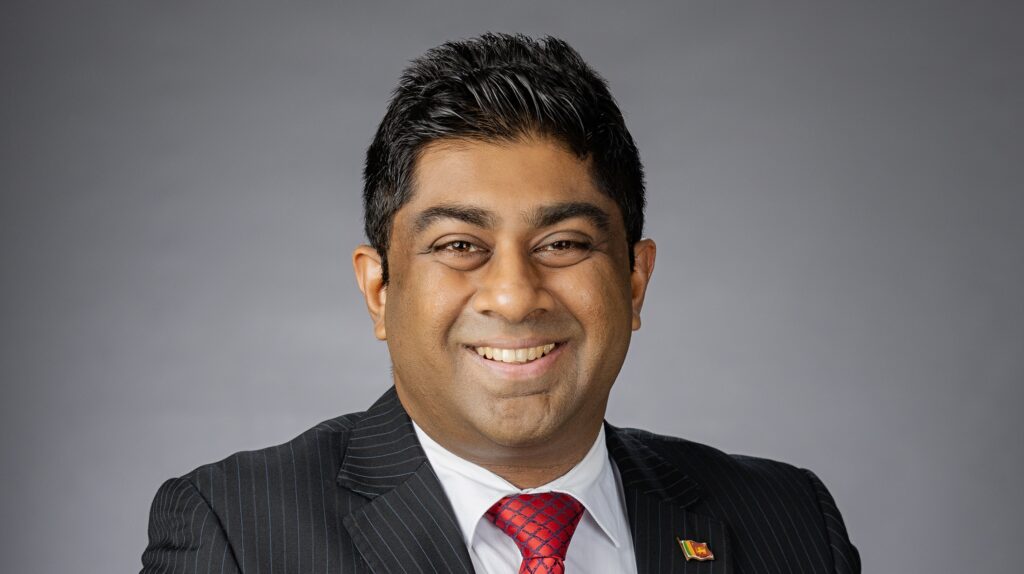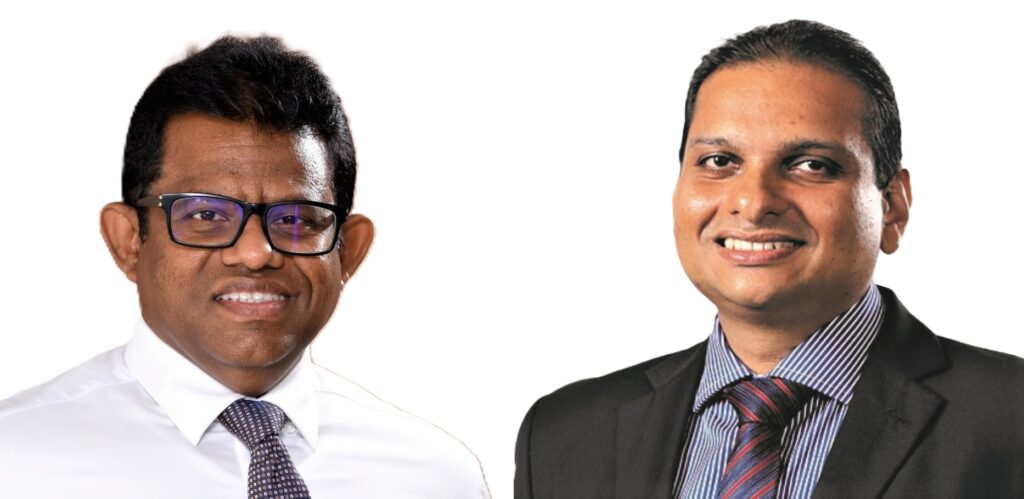By Lakshan Madurasinghe, a concerned citizen
Another year, another World Environment Day, and another theme to rally behind. This year, it’s ‘Ending Plastic Pollution’. Decades of talk, countless promises to act, yet Sri Lanka isn’t ending anything. We are choking in plastics due to delayed action, lack of a common purpose and never-ending excuses.
Sri Lanka generates around 7,000 metric tonnes of solid waste daily. According to the Ministry of Environment, the total estimated municipal plastic waste generated annually is approximately 250,000 tonnes. These numbers sadly represent a system overwhelmed, a nation struggling to manage what it produces.
This reality got me thinking about the power to implement change. What if I had the power to bring about change? What if I were the Minister of Environment, or someone, with the power to change? What would I do differently? This is wishful thinking, of course, but if I were the Minister of Environment or had actionable power, I’d rethink plastic waste management from every angle—producers, importers, consumers, and policymakers alike—demanding clearer purpose, responsibility, and action across the entire ecosystem. With exposure of being once the largest collector of PET plastics in Sri Lanka, the Chairman of the Private sector-led Extender Producer Responsibility committee, experience building 100+ collection and recycling partnerships across Southwest Asia, I know voluntary goodwill alone traps us in endless half-measures. Sri Lanka needs bold, enforceable laws – not half-commitments – to create a system where doing the right thing is standard, not heroic. Only then can future business and government leaders make lasting progress for the environment and our precious communities.
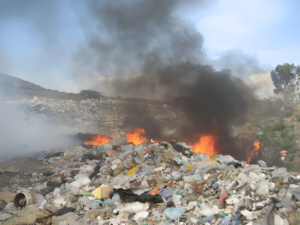
Waste Unmanaged, Accountability Nowhere to Be Found
The truth? Much isn’t working. Waste segregation remains optional – more a suggestion than a norm. Single Use Plastic bans? Weak, half-hearted, and barely enforced. Our collection systems? Crumbling under pressure. Producers flood the market with the cheapest packaging, ignoring consequences. Local councils? Overwhelmed and under-resourced, barely managing the basics. Meanwhile, the informal sector – the real backbone – carries the weight, doing the heavy lifting with hardly any meaningful and noteworthy support.
We don’t have a strong enough circular economy for plastics. And while we’re busy pointing fingers at consumers for “not being aware,” and at big businesses for pumping out products that nobody knows how to dispose of responsibly, we tend to forget that this isn’t only a problem of communication or awareness. It’s a governance failure. A failure we’ve all been tolerating for far too long.
Which brings us to the point – If I, an ordinary citizen with an inside view of how policy, plastic, and people collide – were in charge, I wouldn’t play it safe. I’d flip the script. This crisis doesn’t need more sympathy; it needs structure. I’d hold three accountable: producers must be legally bound to design for recovery, reuse and recycling, not just convenience; governments must create a conducive environment for collection & recycling and enforce with will, and citizens must be equipped to act, not blamed after the fact. One issue. Three actors. Shared accountability. No free passes and you would thereby turn a broken loop into a working system.
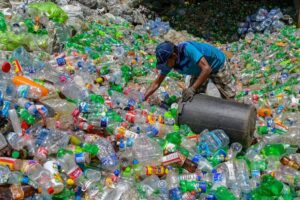
Strengthening Governance Power
Sri Lanka needs a strong, enforceable framework holding every player – from producers to local authorities, accountable for plastic waste. The problem is not a lack of ideas but a lack of systems that force action and ensure transparency. Central to this is the full implementation of the National Solid Waste Action Plan, created with real industry input. Extended Producer Responsibility must be mandatory for all businesses that make, import, or sell recyclable plastic packaging. Producers must aggressively support the collection and recycling of their products. Anything less shifts the costs onto our environment and communities – and that is unacceptable.
But laws alone won’t solve the problem. Practical, locally relevant systems need to be in place on the ground. All 340+ Local Authorities must enforce segregation of plastic waste and set up systems to collect and sell recyclables. To build national momentum, a simple, island-wide practice could be designated – for example, every Monday reserved for recyclable plastic collection. This kind of routine makes recycling predictable and effective.
Strict enforcement is essential. Open dumping and burning must face real penalties tied to clear Environmental Protection License conditions linked with trade licenses and building approvals. We must promote recycling and upcycling innovation, allowing recycled materials in food-grade packaging. Green financing, subsidies, and donor support are vital to scale efforts. Collectors and upcyclers need a strong, supported eco-system to succeed.
Local authorities, on the frontline, require steady budgets, skilled staff, and autonomy to address local needs. Publicly ranking (shaming included) their waste management performance will drive accountability and improvement amongst the LA’s.
Finally, government agencies must break silos. Ministries of trade, customs, urban planning, and environment must coordinate under one national strategy. Environmental protection must be central to all policies to create a cohesive system where regulations support innovation and lasting progress. Around the world, governments have found innovative ways to find resources to make innovation happen. It’s a model we can adapt to fit our needs. With smart, fair mechanisms in place, we can create the support systems industries need to develop sustainable alternatives, right here at home.

Redefining Industry Responsibilities
Tackling Sri Lanka’s plastic waste crisis requires a united effort, and the role of industry is not just important, it is indispensable. This is a moment for bold, practical leadership. Imagine if, by 2030, every piece of primary packaging sold in Sri Lanka was either locally recyclable, returnable for reuse, or had a clear and accountable roadmap for design improvement. That is the kind of ambition we need, not vague promises or pilot projects that never scale. Materials like multi-layered laminates that cannot be separated, soft plastics without viable collection systems, or “compostables” that do not break down in real-world conditions are holding us back. Together, with thoughtful policy and genuine collaboration, we can move from delay to real, measurable progress.
The path forward to do so, can start, with making Extended Producer Responsibility (EPR) mandatory for every actor putting recyclable plastic on the market; manufacturers, importers, repackers, distributors, converters. Voluntary action isn’t enough. EPR must be a legal obligation, backed by transparent, real-time reporting of how much plastic enters, is collected, and is recycled. This data is essential by all concerned players, not just for accountability, but for designing interventions that work. Many businesses have already stepped up, making voluntary changes in the absence of formal regulation. That deserves recognition. It’s proof that industry shares a genuine commitment to change. But we all know there’s still a lot more to do. This isn’t about pointing fingers, it’s about coming together. We start with PET plastics, where Sri Lanka already has solid local recycling capacity, and expand systematically from there to HDPE, PS, PP, etc. And we must be clear: voluntary EPR cannot coexist with contradictory outright bans or quota-bans. The rules must be consistent, transparent, and aligned.
Recyclability alone isn’t enough. Producers must also focus on design improvements, like reducing the thickness of its packaging (lightweighting), to minimize waste from the outset. And only accredited recyclers who meet environmental and operational standards should be allowed to handle plastic waste. At the same time, labels must clearly indicate whether the product is recyclable. This isn’t just about educating consumers; it’s about transparency, traceability, and shifting the burden of responsibility where it belongs.
We also need new regulations that allow recycled content, especially food-grade rPET, into the packaging stream. Right now, we’re collecting plastic, but blocking its reuse. That’s not a circular economy. It’s a dead end. If we want to close the loop, we must change the law to make true recycling possible, not just performative. And industry must support innovation in alternative materials wherever feasible, while maintaining product safety and quality. Recyclable packaging must not only exist; it must also be safe and economically viable.
Finally, Sri Lanka must establish legally mandated Producer Responsibility Organizations (PROs), industry-led, government-regulated bodies like those successfully operating in South Africa, South America and Europe. A PRO is an entity, usually a third-party organization, that charges a fee and takes on the responsibility of managing the end-of-life (recycling, collection, and disposal) of products on behalf of producers or manufacturers.
We must also be mature enough to understand that what works in one country may not be right for Sri Lanka. Our industries face unique economic realities, and we must take that into account. Bans without alternatives can backfire. What’s needed instead is a roadmap that gives industry the time, clarity, and support to innovate. This calls for stronger collaboration between ministries and sectors. When the direction is clear and the approach is practical, Sri Lankan industries have always found a way forward, and they will again. The National Action Plan gives us a foundation we’ve all agreed on. Now is the time to make it real, with each of us doing our part to move from plans to action.
Empowering citizens and public for change.
Environmental literacy must start early. I would embed plastic waste segregation into school curricula as a mandatory, graded subject, teaching not just what plastic is, but its environmental impact and role in a circular economy. This isn’t just about knowledge; it’s about action. And yes, behavior can be changed. In fact, it takes about four hours. Just fly a Sri Lankan to Singapore and watch how quickly they adapt. The challenge isn’t awareness. It’s building systems that make doing the right thing simple and rewarding.
Policies should be published with clear digital campaigns explaining how citizens can take action. Because the problem isn’t plastic. It’s how we misuse and mismanage it. PET bottles, yogurt cups, personal care bottles, gel and sauce containers, etc. – they’re all recyclable, and Sri Lanka has the infrastructure and workforce to do it. But only if we see plastic, not as garbage, but as misplaced value.
Finally, citizen empowerment is non-negotiable. We must open channels for community oversight, including reporting illegal dumping, open burning, and pollution. The media, civil society and youth-led organizations must have a voice in shaping environmental policy. With support from the existing Environmental Police and public health inspectors, we can enforce change on the ground. This is how we turn knowledge into movement, and movement into lasting impact.
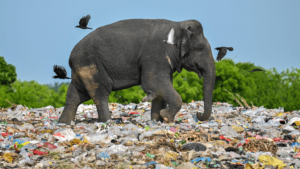
No more excuses and delays
We’ve heard every excuse: “It’s complicated,” “We need more time,” “Stakeholders aren’t ready.” Meanwhile, plastic piles grow, rivers choke, and communities suffer. Children breathe toxic air, farmers lose land, fisherfolk haul waste-filled nets, and microplastics invade our lives. This is the cost of delay.
Many want to act, but the system traps them in endless excuses. Without clear rules, strict enforcement, and aligned incentives, good intentions are empty words. We must fix the system, making responsible action inevitable. Only then can Sri Lanka truly progress on plastic pollution. Good intentions must become real, measurable change.
If you represent the government, your job is to enforce laws with teeth, not to draft endless committees. If you lead in industry, your responsibility is to design products that don’t poison the planet and to fund the systems that close the loop. If you are a citizen, waiting for someone else to fix it is no longer acceptable. Change begins with each of us owning our part, no matter how small or large. Adopt your street, take action and ownership in a small way. Be the change you desire.
We are past the era of discussions, policies, and empty promises. The future is shaped by those who dare to disrupt the status quo and demand real consequence. Our precious island’s environment deserves nothing less.


